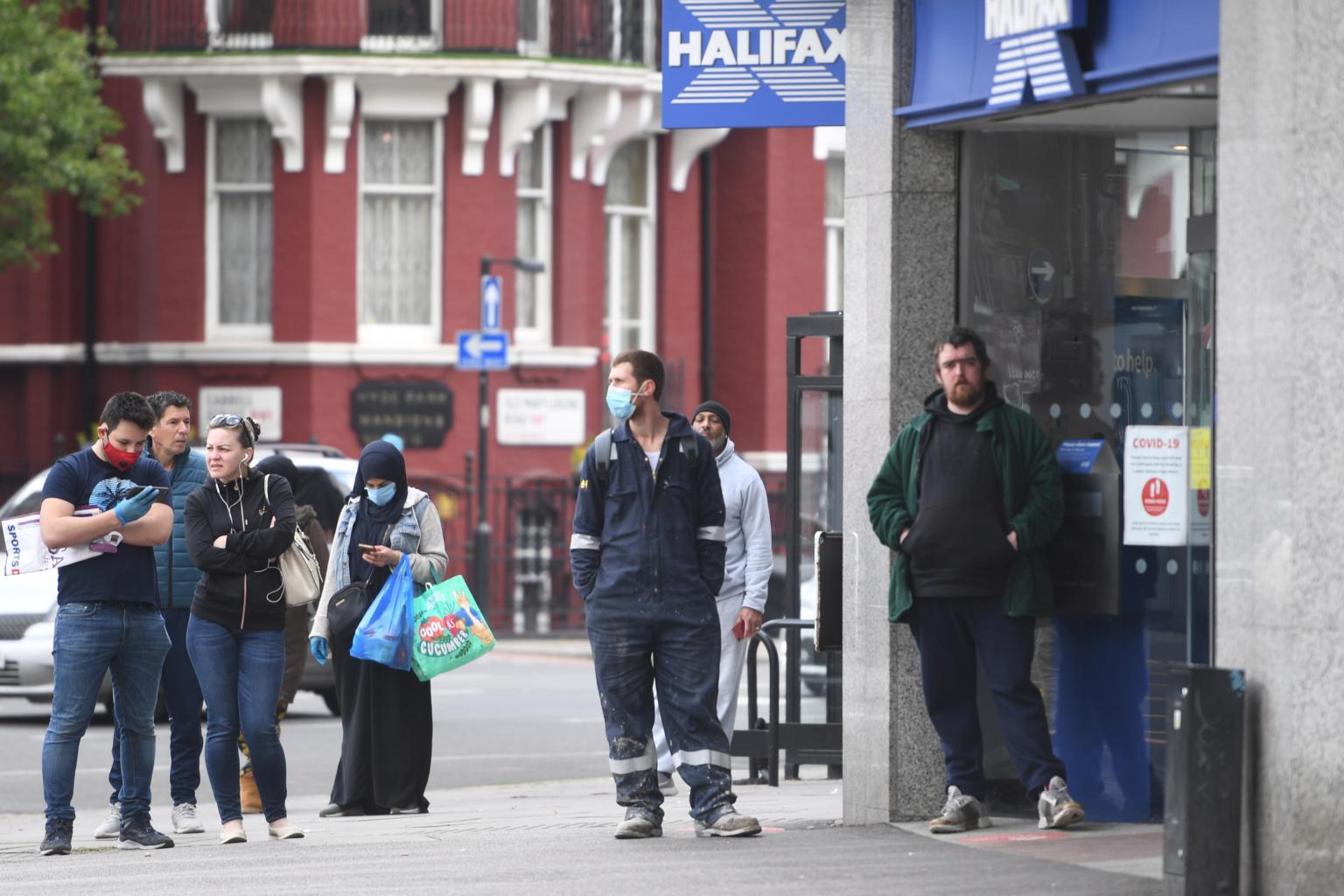British coronavirus adviser quits after breaking social distancing rules
Sign up now: Get ST's newsletters delivered to your inbox

Customers observing social distancing rules wait in line outside Halifax bank in London, Britain, on May 4, 2020.
PHOTO: EPA-EFE
LONDON (BLOOMBERG, AFP) - The scientist whose analysis pushed Prime Minister Boris Johnson to put Britain into lockdown has resigned from his advisory role after the Telegraph reported he had broken social distancing rules to meet a woman.
Dr Neil Ferguson, an epidemiologist at Imperial College London, led the team that produced a model in March showing deaths from coronavirus would shoot up and overwhelm the health service without a lockdown.
He said on Tuesday (May 5) evening he had "stepped back" from the government's Scientific Advisory Group for Emergencies, which has been guiding the British response.
Its members are under increasing pressure over their advice, with the United Kingdom death toll now the highest in Europe.
"I accept I made an error of judgment and took the wrong course of action," Dr Ferguson said in an e-mailed statement.
"I acted in the belief that I was immune, having tested positive for coronavirus and completely isolated myself for almost two weeks. I deeply regret any undermining of the clear messages around the continued need for social distancing."
He added: "The government guidance is unequivocal and is there to protect all of us."
A government spokesman confirmed Dr Ferguson's resignation.
Britain, the world's second worst-hit country after the United States with more than 32,000 coronavirus deaths, imposed strict stay-at-home orders in late March.
The government had ramped up its response to the crisis after research by Dr Ferguson and his colleagues at Imperial College London warned that Covid-19 infections and deaths would spiral without drastic action.
Dr Ferguson's resignation came after the Daily Telegraph reported that a woman, said to be his "lover", came to his home in London on two occasions during the lockdown.
Prime Minister Boris Johnson, who was hospitalised with the disease and has now recovered, ordered the initial three-week lockdown on March 23.
Under the measures, "non-essential" shops and services were shut while residents were told not to go out except for exercise and to buy essential items.
Police were given powers to fine those flouting the rules.
The lockdown was extended for another three weeks in mid-April, but Mr Johnson is soon expected to set out his plan to lift the stringent rules, according to media reports


